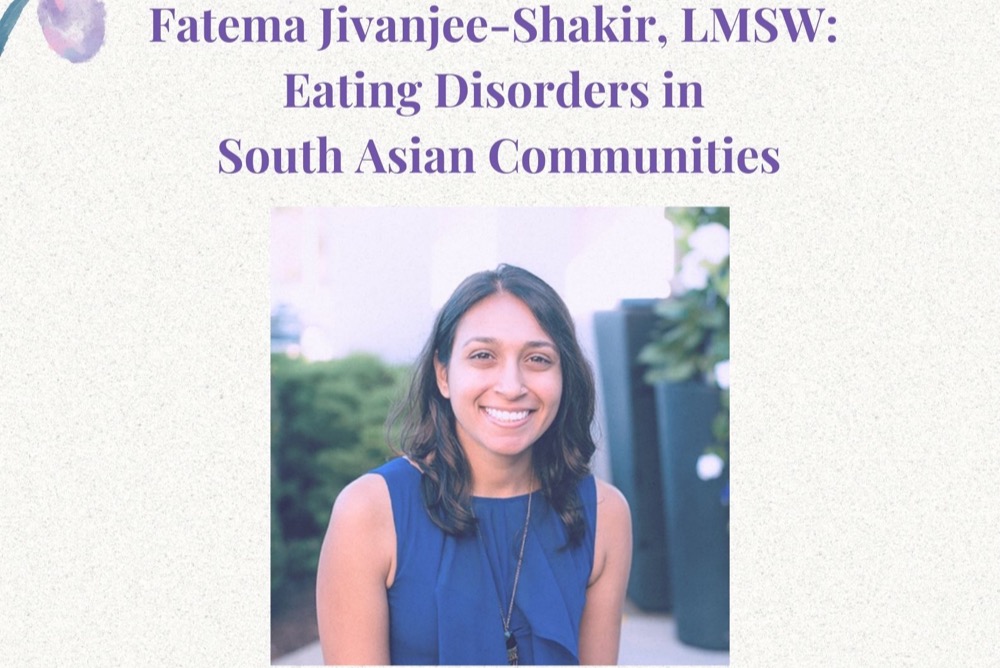W&M Featured Events
[PAST EVENT] Fatema Jivanjee-Shakir, LMSW: Eating Disorders in South Asian Communities
Access & Features
- Open to the public

"BBIPOC (Black, Brown, Indigenous, and People of Color) individuals have historically been underdiagnosed and undertreated for eating disorders (Deloitte Access Economics, 2020). Racism, fatphobia, intracultural stigma, and lack of awareness of cultural nuances surrounding food & the body in BBIPOC communities are key factors impacting underdiagnosis and undertreatment in these populations.
Furthermore, education regarding how religion can contribute to disordered eating is scarce in current eating disorder etiology and recovery models. Religious identity and experience is an especially unique risk factor for BBIPOC individuals, who are more likely to identify with a religion than their Caucasian counterparts (Pew Research Center, 2015). Western secularism has pushed to divorce healthcare and religion on the basis of separation of science and faith. However, in doing so, the impact of religion on the development and treatment of mental health conditions, particularly eating disorders, is often overlooked, especially for BBIPOC individuals.
In this presentation, we will explore how race and religion both separately and collectively influence the development of disordered eating and eating disorders. We will also consider ways in which students can recognize signs of disordered eating amongst themselves and their peers who identify as BBIPOC and/or of a religious background." - Fatema Jivanjee-Shakir
